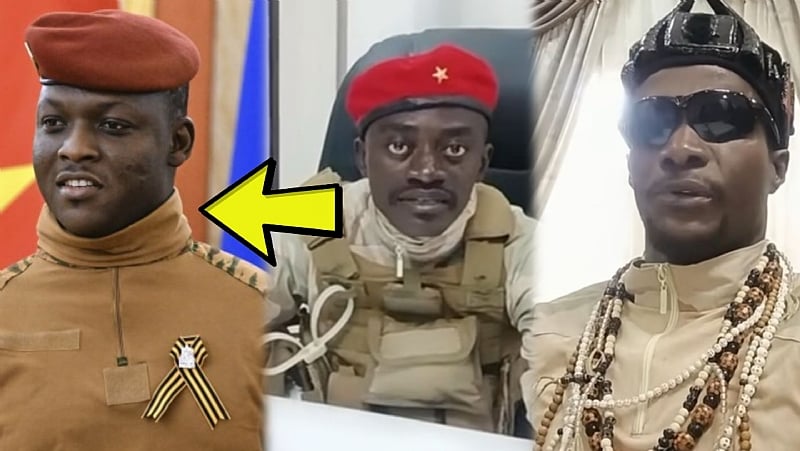The upcoming Ghanaian film, Ibrahim Traoré: The Last African Hero, has ignited a firestorm of controversy even before its premiere, raising questions about its political messaging and potential impact. Directed by Kwadwo Nkansah Lilwin, popularly known as Lilwin, and written by renowned filmmaker Jackson K. Bentum, the movie centers around Captain Ibrahim Traoré, the young military leader who seized power in Burkina Faso in September 2022. Bentum, in an interview with Sean City TV, emphasized that Lilwin was the ideal choice to helm the project, possessing the unique ability to translate the script’s vision into a compelling narrative. However, the film’s subject matter has drawn criticism, with some accusing it of glorifying military coups in a region already grappling with political instability.
Bentum vehemently denies these accusations, clarifying that the movie’s intent is not to endorse coups d’état. Instead, he argues, the film explores the themes of leadership and its profound impact on a nation. He points to Captain Traoré’s leadership in Burkina Faso, which, despite its controversial origins, has resonated with a segment of the population seeking a departure from traditional political structures and a renewed sense of national sovereignty. Traoré’s rise to power at the age of 34, making him the world’s youngest head of state at the time, symbolizes a shift towards youth-led movements and a desire for change within Burkina Faso.
The film delves into the complex political landscape of Burkina Faso and the factors that led to Traoré’s ascent. It examines his promise to restore security and national pride amidst growing instability and the perception of waning national dignity. Traoré’s leadership has been marked by a distinct break from former colonial power France, a strengthening of ties with Russia, and a focus on bolstering local economic resilience. These actions have garnered both praise and criticism, with supporters lauding his bold stance on self-reliance and internal reforms, while detractors point to rising authoritarianism and persistent security challenges.
Ibrahim Traoré: The Last African Hero seeks to capture the essence of this complex and evolving political narrative. The film aims to spark a dialogue about leadership, the quest for independence, and the future trajectory of Africa. It delves into the motivations behind Traoré’s actions and the socio-political climate that allowed his rise to power. By presenting this story, Bentum and Lilwin hope to encourage critical discussions about the challenges facing African nations and the different paths towards progress and stability.
The controversy surrounding the film highlights the sensitivities surrounding portrayals of political figures, especially those who have come to power through non-democratic means. The debate reflects the diverse perspectives within Ghana and across Africa regarding the legitimacy of military interventions and the complex interplay between national sovereignty, political stability, and economic development. The film’s creators emphasize that their intention is not to take sides but to present a nuanced portrayal of a pivotal moment in Burkina Faso’s history, prompting reflection on the broader implications for the African continent.
Ultimately, Ibrahim Traoré: The Last African Hero promises to be a thought-provoking cinematic experience that transcends mere entertainment. It aims to engage audiences in a critical examination of leadership, the pursuit of national identity, and the ongoing struggle for self-determination in Africa. The film’s release is anticipated to generate further discussion and debate, contributing to a deeper understanding of the complex political realities shaping the continent’s future. While the film’s reception remains to be seen, it has already succeeded in sparking a crucial conversation about the challenges and opportunities facing African nations in the 21st century.


